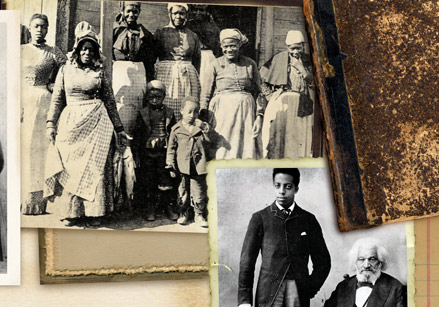


A Powerful Legacy for Black Education
by Catherine Gianaro
Intro
| Determined to be Literate
| A Change in Perception

![]()
A Change in Perception
So what happened during the next century that so drastically changed the way some blacks perceive education?
A half century or more of sharecropping, during an era described by historian Rayford Logan in 1954 as the “nadir of black history,” produced the belief that to be successful on the white man’s terms, including succeeding in education, was to run the risk of maltreatment or a lynching.
“That alone may have contributed to countering the thinking that access to literacy meant access to power,” Butchart said. “If they showed their intelligence, black people were seen as uppity, and, as a result, could face violence or death.”

“We have story after story from teachers, who would write, ‘I’m simply amazed at the speed with which these [black] children learn. They learn faster than white children and their hunger for education is greater than anything I’ve ever seen,’” Butchart said.</p>
Further, and perhaps more importantly, according to Butchart, the promise that education would change one’s place in American society has rung hollow. For African Americans, gaining an education too often made no difference in terms of access to better occupations, better living conditions, or greater respect. As a single example, by the end of World War II, there were about 100 porters working at Chicago’s Union Station, he said, yet more than 90 of them had master’s degrees. They were still making minimal incomes, trying to live off tips they got carrying bags.
Such disparities, with African Americans achieving far more in school than their place in society reflected, continued until 20 or 30 years ago, Butchart said. “Today, many black kids will look you in the eye and say that education doesn’t pay. They may be better historians than their teachers — they know too many of their people who got a good education still ended up being unemployed or underemployed.
“We have to rethink how we package education and what we say education will do,” he added. “If the social system outside the school cannot or will not provide all of us with access to meaningful kinds of work, then those who are constantly penalized by that are eventually going to say, ‘Your system is a lie.’
“The tragedy is that African Americans fully embraced education at their emancipation, but they ended up in a peonage that was just as grinding as the form of slavery that preceded it,” Butchart said. “This is not ultimately a triumphant story. It’s a tragic story because the promise of education didn’t pay off in the ways that the freed people and their supporters hoped it would. Access to the codes of power did not give access to power.”
For more information, access Ronald Butchart’s Freedmen’s Teachers Project at http://www.coe.uga.edu/ftp.
Intro
| Determined to be Literate
| A Change in Perception
For comments or for information please e-mail: rcomm@uga.edu
To contact the webmaster please email: ovprweb@uga.edu
![]()